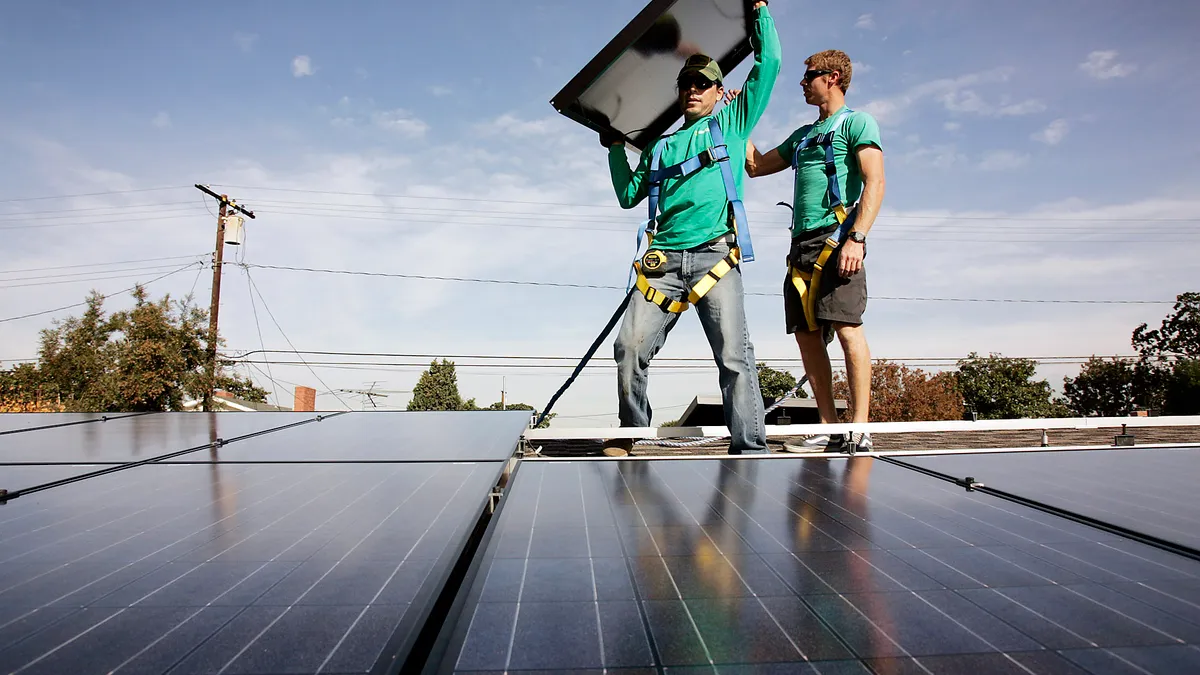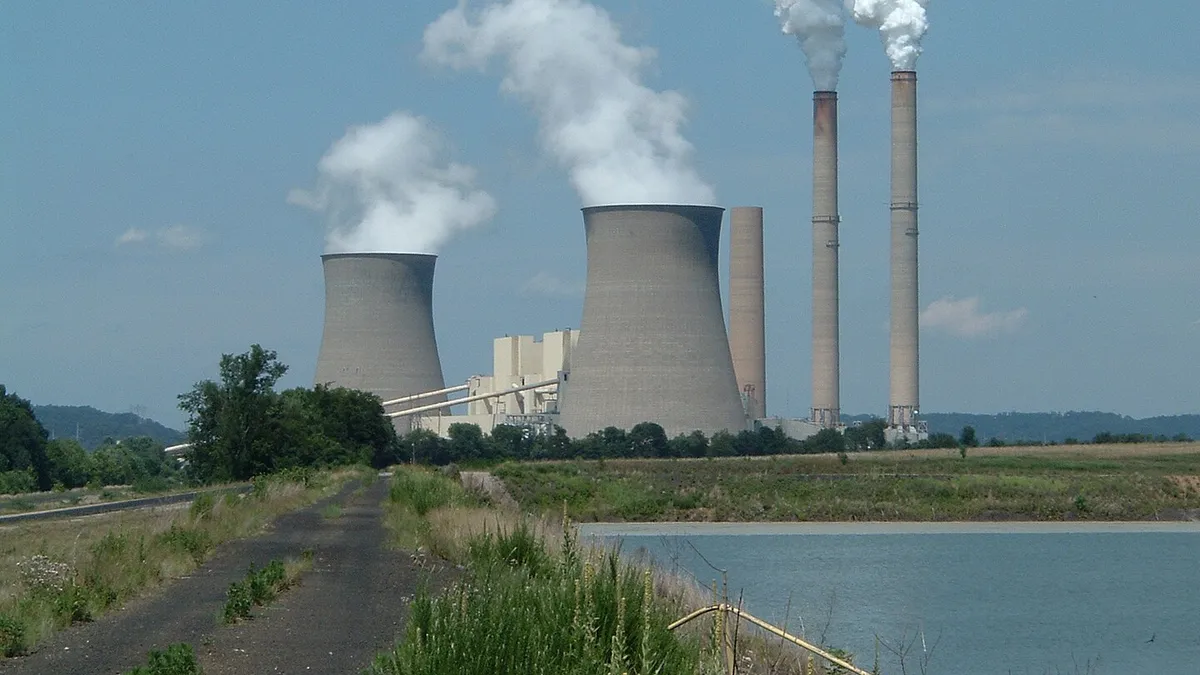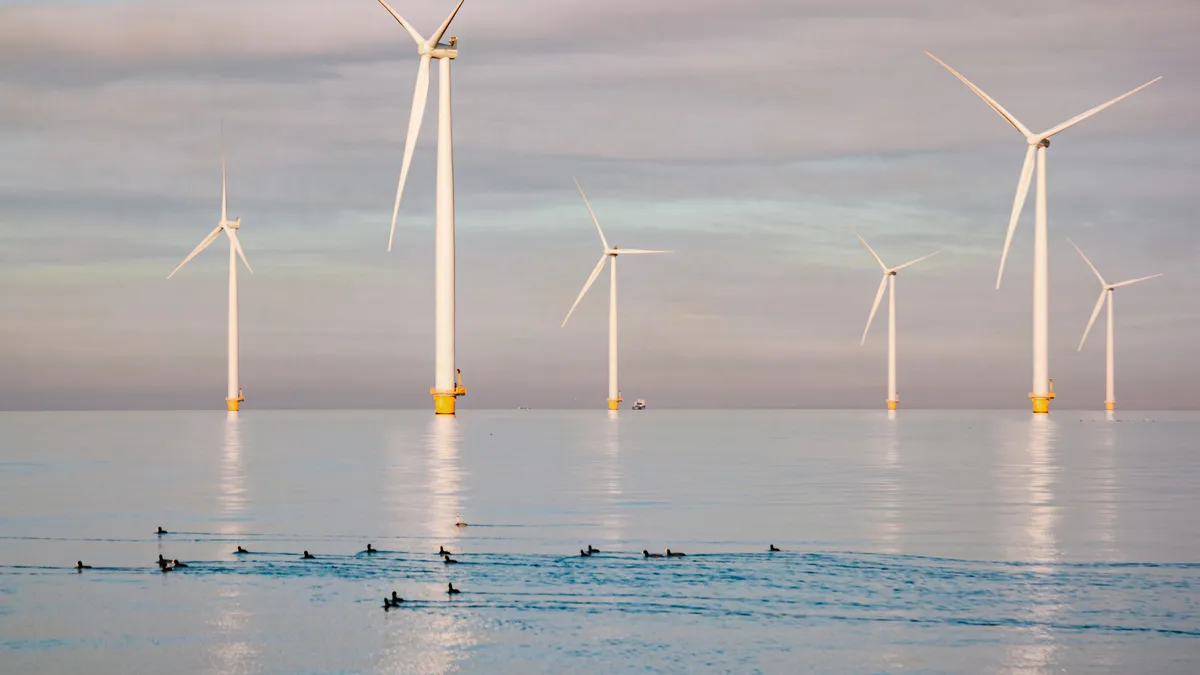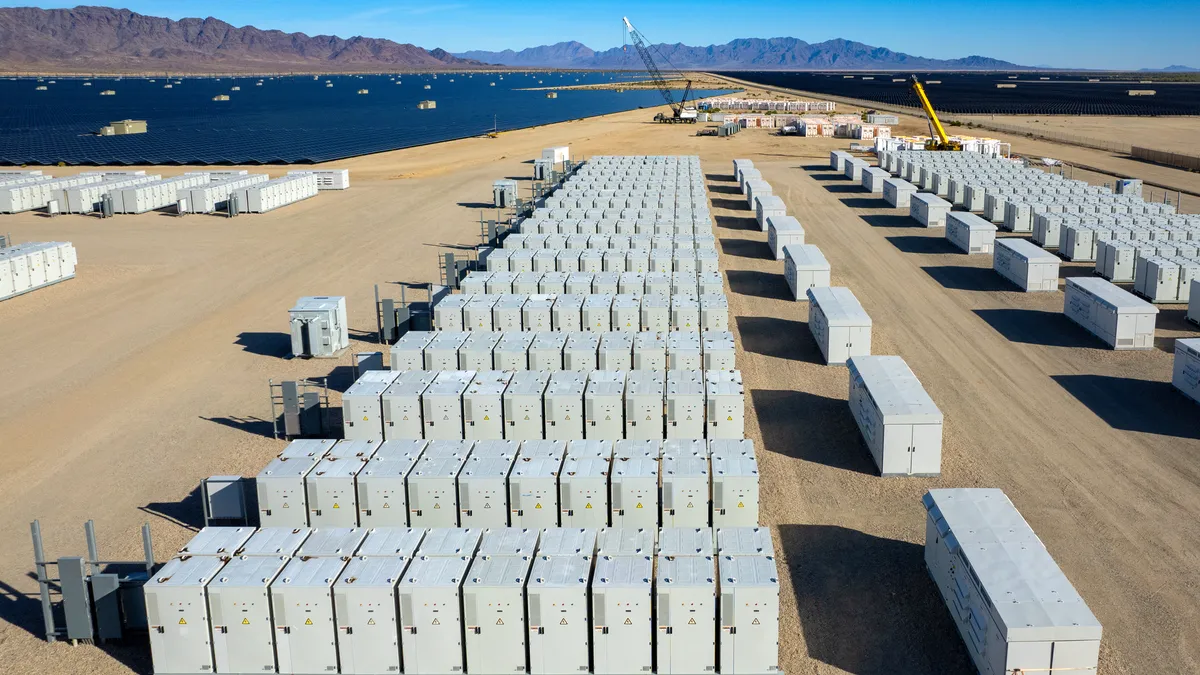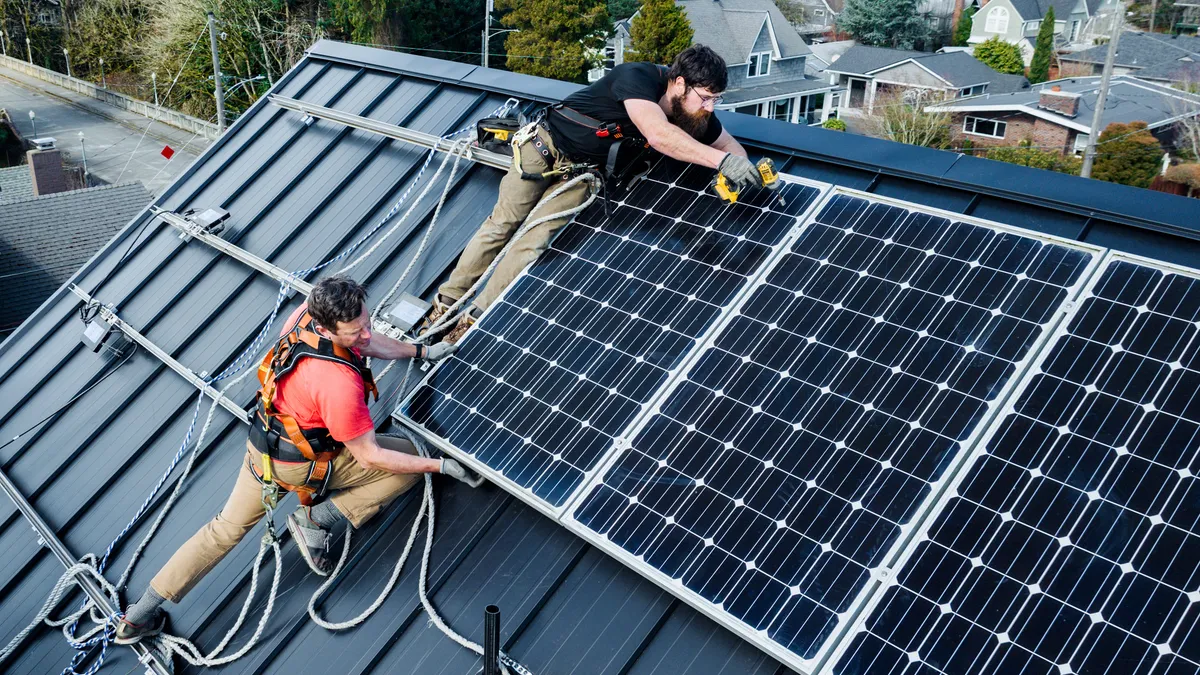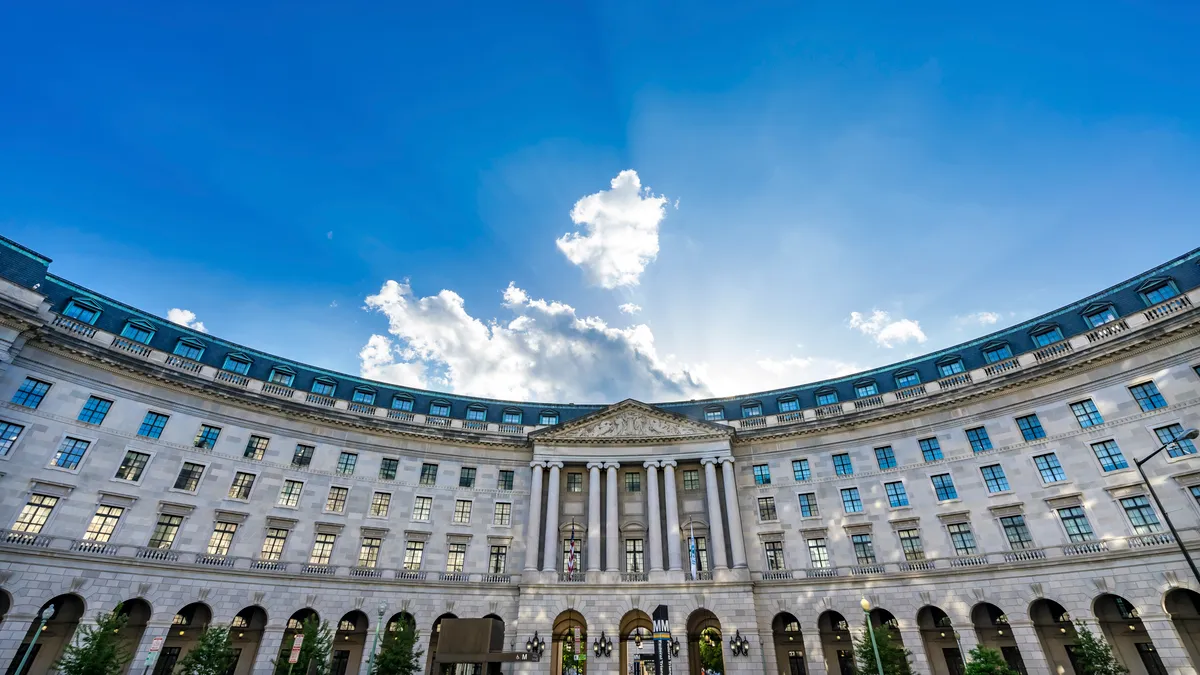At the end of last year, the epicenter of solar net metering battles shifted to Nevada, where regulators reduced incentives and imposed new fees for rooftop solar owners in the state.
The Dec. 22 decision, upheld by regulators in later votes, set off a firestorm of criticism at the Nevada Public Utilities Commission. Solar owners protested the regulatory body, saying the lower rates violated contracts they had previously signed with installers, and a group filed a lawsuit against the PUC.
Commissioner David Noble knows that controversy like few others. As the presiding officer in the PUC’s net metering docket, he oversaw evidentiary hearings on rooftop solar incentives and authored many of the decisions and orders in the proceeding.
Until now, the commissioner had remained silent on many of the details of the contentious docket, which saw accusations of unethical behavior from all sides. But at the summer meeting of the National Association of Regulatory Utility Commissioners (NARUC) in Nashville, Tennessee, Noble spoke out on the well-known decision.
While press reports and solar lobbyists painted the decision as a “disastrous” for the rooftop industry, Noble said it was the solar industry that failed to constructively engage with the regulatory process.
“One of the problems in the case before us is the rooftop solar companies decided to take an approach of an all-or-nothing, and basically promoted that there should be no change from retail rates,” he told fellow regulators. “When you take an all-or-nothing approach there's a possibility you're going to lose and that's exactly what happened because they put on an inferior case.”
While Noble said he would have made the comments regardless, Utility Dive learned Gov. Brian Sandoval (R) will not reappoint him to another term at the end of this year — a fact the governor’s office confirmed to Utility Dive this morning.
“I just caution all commissioners to listen to all sides but be very wary,” Noble said. “Words are one thing, actions are another.”
The Nevada solar backstory
In his address at the NARUC meeting in Nashville, Noble laid out the backstory of how the PUC came to its contentious decision, “just as a caution for commissioners around this table about who you’re dealing with and what's going on.”
In the spring of 2015, Noble said he got a call from a legislative leader saying they were struggling with the net metering issue and were thinking about kicking the issue over to the PUC. In May, the signing of Senate Bill 374 did just that — ordering the PUC to devise a replacement for retail rate net metering that did not impose unreasonable cost shifts onto non-solar customers.
Solar companies supported the bill and the notion that net metering decisions should be made at the PUC, Noble said. But after the fact, they criticised the timing of the bill, saying they had no choice but to support it.
“Within three weeks of that legislation of being passed, the CEO of SolarCity was complaining that he literally had a gun to his head and the commission was in the back pocket of the utility,” Noble said.
Rhetoric like that continued all summer long, including a July interview on KNPR public radio, where Bryan Miller, then-president of The Alliance for Solar Choice (TASC), said solar companies were not getting a fair shake in front of the commission.
“What’s clear from all these [past] rulings,” Miller said, “is NV Energy is getting its way with the commission these days, and there is no question that they have been very successful in the legislature and the commission with their political influence, and, you know, we saw more examples yesterday.”
Those comments did not sit well with Noble, who recalled that he “chastised everyone in that proceeding.”
“Comments like that are absolutely reckless,” Noble said at the time, according to commission documents. “It impugns the integrity of this agency. And Mr. Miller, while he's entitled to his opinion, no matter how ignorant or ill-informed it is, I do not appreciate those. If he has evidence of some wrongdoing on behalf of this commission, I would like to see it.”
Noble responded to accusations from TASC that he had attempted outside communications with utility NV Energy, calling them unfounded and saying all discussions went “through proper channels.” By contrast, solar lobbyists had actually attempted such improper communications, he alleged.
“The fact that an individual for TASC is claiming that the commission is somehow biased and subject to influence, and at the same time had attempted to influence one commissioner, is very hypocritical, in my opinion,” he said.
The net metering decision
After all the hearings and acrimony, the PUC issued its net metering decision on the last business day before the winter holiday break.
In the order, regulators approved new rates that increased the monthly charge for solar-owning NV Energy customers from $12.75 to $17.90 and decreased their volumetric rate from $0.111/kWh to $0.108/kWh. After subsequent revisions, the monthly basic service charges would scale up gradually to reach $38.51 while the volumetric rate would fall to $0.099/kWh over 12 years. The net metering credit for all solar owners would fall from $0.11/kWh — roughly the retail rate of electricity — to $0.09/kWh in the first year.
In an unprecedented move, regulators applied the lowered net metering rates not just to new solar customers, but existing ones as well. All previous net metering reforms, analysts told Utility Dive at the time, had “grandfathered” existing customers, allowing them to keep their originally-contracted incentives.
Despite that, Noble told the NARUC conference that his commission’s net metering reform was well within the mainstream of solar policy, and included many elements of net metering policies that solar advocates support.
“We rejected demand charges, we instituted optional time-of-use rates and we essentially phased in over 12 years value-based rates for that excess [rooftop solar] energy,” Noble said. “That's not what you hear in the press, that's not what you hear in discussions with people with vested interests on one side of what we did.”
“We also put net metering customers in a separate rate class because they’re partial requirement customers,” he added. “That’s pretty basic in my mind.”
After the decision, rooftop solar companies charged that the commission ignored the benefits of rooftop solar to the utility grid. Quite to the contrary, Noble said the solar industry failed to present evidence on those very benefits.
In crafting the value-based rates, the PUC used a set of 11 variables based on a value of solar analysis conducted in South Carolina — cost of avoided energy; line losses; avoided capacity; ancillary services; transmission and distribution system capacity; avoided criteria pollutants; avoided CO2 emissions; fuel hedging; utility integration and interconnection costs; utility administration costs; and environmental costs.
Some press coverage, Noble said, has said the commission ignored nine of the 11 variables. “The truth of the matter is that nine of those variables, nobody presented any evidence before us. It's not that we ignored them. No evidence existed.”
The lack of evidence was also present in the question of grandfathering existing rooftop solar users, Noble told Utility Dive after his talk.
“There was nothing there,” he said. “I can’t make a decision for one position when there's no support for that position.”
TASC says it presented ample evidence before the commission, releasing a statement from Tom Beach, a consultant who sponsored testimony on behalf of TASC in the Nevada proceedings,
"Evidence on the benefits of rooftop solar was presented in direct testimony to the Nevada Commission," he wrote in a statement from the group. "I specifically quantified the benefits of avoided generation capacity, avoided transmission and distribution capacity, avoided criteria pollutant costs, avoided carbon dioxide emission costs, and fuel hedging on pages 32-47 of my direct testimony. Thus, there was substantial evidence in the record for many of the categories of benefits for which Commissioner Noble claims that there was none."
"Further," Beach wrote, "I presented testimony and supported the fact that under the new net metering rates that the PUCN adopted on December 23, 2015, existing solar customers would see major reductions in their bill savings from adding solar. I showed that solar users would lose from 30% to 100% of their bill savings. From this evidence, it should have been clear to the PUCN that its refusal to adopt grandfathering for existing solar customers would cause serious economic hardship."
After the December decision, NV Energy proposed amending the ruling to include a grandfathering provision. But the PUC stuck to its guns, approving a draft proposal written by Noble that extended the timeline for rate changes, but did not protect existing customers from lower remuneration.
Gov. Sandoval panned the decision.
“While I have respected the Commission and its deliberations by not influencing its process, the PUC did not reach the outcome I had hoped for,” he said after the vote. “Today's decision does not go far enough to protect [existing solar owners’] interests."
In the wake of that vote, Sandoval convened a group called the New Energy Task Force to move past the acrimony of the net metering debate. In May, that group revealed its first round of recommendations, including a grandfathering provision for rooftop solar customers.
A spokesperson for Sandoval declined to comment on whether the net metering debate factored into the governor’s decision not to reappoint Noble, responding with only this statement:
“The governor is appreciative of his service at the Public Utilities Commission but has informed Mr. Noble that he will not be reappointed,” Mari St. Martin wrote to Utility Dive. “The governor believes the PUC needs a fresh perspective and new direction. Any further announcement regarding this appointment will be made at a later time.”
Fallout from the decision
Whether or not Noble’s leadership on the net metering issue cost him the governor’s favor, the commissioner has already had to deal with a great deal of fallout from the decision. At one PUC meeting, commissioners had to be ushered out when observers carrying firearms attempted to enter a commission meeting. (Nevada is an open carry state.)
In particular, Noble zeroed in on accusations that the PUC’s net metering decision was retribution for aggressive rooftop solar tactics — a charge reported by Utility Dive after speaking with a number of Nevada insiders.
“I read articles about the situation in Nevada being toxic, and … that somehow the commission's decision was based on retaliation,” Noble said. “That is absolutely offensive. That's not what I do. I base the decisions on the law, facts and evidence and that's what my fellow commissioners do.”
Noble expressed frustration with the media trope that the PUC decision was “disastrous” for rooftop solar. In its aftermath, SolarCity and Sunrun ceased operations in the state, but Noble said the real disaster was a push from solar companies to put pressure on the commission by signing up tens of thousands of new customers in the run-up to the net metering fight.
“After [SB 374] legislation was passed, rooftop solar companies came in and flooded the market with installers and salesmen and they signed up 25,000 more people in six months,” Noble said. “That's a train wreck waiting to happen, knowing that we're mandated to review the costs and benefits of rooftop solar and come up with rates that represent no unreasonable cost shifts.”
After the commission upheld its decision in February, the net metering debate entered its legal phase, with TASC suing the commission and a group of solar owners suing NV Energy.
“If the court finds that we did not follow the law, we will go back and revise our decision,” Noble said. “Otherwise, it will stand.”
The future of rooftop solar
Despite his frustrations with the rooftop solar sector, Noble said there is still an opportunity to mend the strained relationships in Nevada.
In recent months, some large solar companies and groups have taken steps to appear more collaborative, and less combative, on utility-solar issues. SolarCity, for instance, brought in former FERC Chair Jon Wellinghoff to lead their policy team, while TASC and Sunrun both parted ways with Bryan Miller, the controversial executive who drew Noble’s ire in Nevada.
“I've been told that the rooftop solar companies want to now engage, that [their behavior] was a mistake in the rhetoric and the things they did with the commission, and that sounds great,” Noble said.
But the solar companies are still backing a referendum to “overturn the commission's decision and lift the cap on net metering and go to retail rates for compensation,” he added. That referendum faces a legal challenge, with a hearing set for Friday in the state's Supreme Court to see if it will make the November ballot.
“That does not seem to be consistent with what they're saying that they want to engage with the commission and the process and get to value-based rates,” Noble said. “It will be interesting to see in Nevada over the next few months what's going to happen.”
While the current net metering decision may be held up in the courts, new information will soon be available that could help influence the debate, Noble said.
“The legislature has asked for an update of a net metering study that was conducted by E3 two years ago,” he said. “At that time it found a $36 million benefit to non-participating ratepayers in rooftop solar program based on the utility-scale solar at $100/MWh. We're now under $40/MWh. That study will come out on Aug 21.”
If rooftop solar companies want to engage with the commission during Noble’s remaining tenure and afterward, the commissioner had one simple suggestion after his talk:
“Pull the referendum and continue to advocate for their position with passion before the commission and engage totally with the commission.”
Correction: A previous version of this article said the net metering referendum was cleared for the November ballot. That is incorrect. The proposal is still facing a legal challenge, with a court hearing set for this Friday.
This post has been updated to reflect comments from The Alliance for Solar Choice (TASC).


